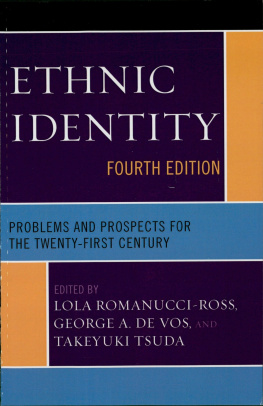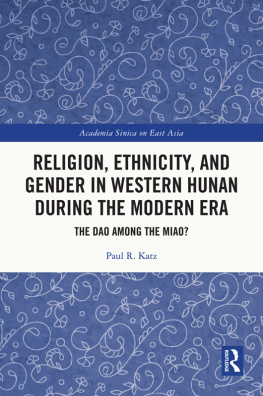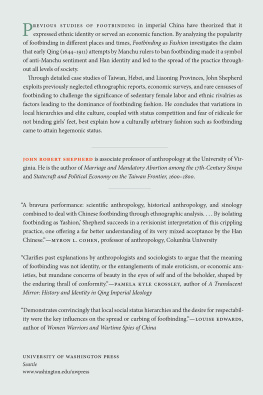This book is a publication of
Indiana University Press
Office of Scholarly Publishing
Herman B Wells Library 350
1320 East 10th Street
Bloomington, Indiana 47405 USA
iupress.indiana.edu
2020 by Indiana University Press
All rights reserved
No part of this book may be reproduced or utilized in any form or by any means, electronic or mechanical, including photocopying and recording, or by any information storage and retrieval system, without permission in writing from the publisher. The paper used in this publication meets the minimum requirements of the American National Standard for Information SciencesPermanence of Paper for Printed Library Materials, ANSI Z39.48-1992.
Manufactured in the United States of America
Cataloging information is available from the Library of Congress.
ISBN 978-0-253-04792-2 (hdbk.)
ISBN 978-0-253-04794-6 (pbk.)
ISBN 978-0-253-04796-0 (web PDF)
1 2 3 4 5 25 24 23 22 21 20
THIS VOLUME BEGAN LIFE ON October 15, 2015, as a conference held at Harvard University by the African Studies Workshop (ASW) under the sponsorship of the Center for African Studies. Entitled Ethnicity, Inc. Revisitedwhich we retain for the title of the introductory essayit was the second ASW conference. The first, two years earlier, resulted in the publication of The Politics of Custom: Chiefship, Capital, and the State in Contemporary Africa (University of Chicago Press, 2018). We would like to thank the staff of the centerespecially its then executive director, Susan Cook, who is also a contributor to this volume, and associate director, Maggie Lopesfor their invaluable assistance in creating and coordinating the event. Our appreciation also goes to Alma Medina, our administrative assistant in the Department of African and African American Studies, for her unstinting efforts in bringing both the conference and the book to fruition, and to our research assistant, Sebastian Jackson.
ETHNICITY,
COMMODITY,
IN/CORPORATION
IN ITSELF, THE PHENOMENON OF ethnicity is hardly new. As a slippery, polyvalent concept of collective being-and-interest, ethnicity had already troubled Max Weber (1968, 387) a century agoalthough, as a common noun, it only appeared in Websters Third New International Dictionary in 1961 and entered the anthropological lexicon quite recently (Surak 2010, 152; Comaroff and Comaroff 2011, 6872). Neither is the marketing of ethnic difference unprecedented: trade in the emblems, effects, and embodiments of Otherness dates back deep into to the mists of time. But what provoked the writing of Ethnicity, Inc.to which this collection is both a sequel and a good deal morewas the sudden intensification, across the late twentieth-century world, of the commodification of culture and the corporatization of identity.
The significance of ethnicity, howeverof ethnicity understood as the biocultural basis for forging selfhood, for feelings of primal attachment and shared affect, for claiming rights and defending interestshas grown greatly over the past few decades. At stake in the original study was not just the heightened incidence of such things as cultural tourism and casino capitalism. Or the sale of heritage and the predisposition of diverse populations to buy into itto buy in, that is, in both senses of the phrase. It was that ethnic identity itself was being repurposed, taking on more objectified, commodified formand, in so doing, animating novel species of value, novel claims to sovereignty, territory, and property, novel kinds of sociality and sensibility.
Ethnicity, Inc. sought to explore the impact of these transformations on the people and populations caught up in them, on the sense of selfhood, sociality, ownership, and belonging they conjured into existence, on the emotive energies they engendered, on the conscience collective they shaped. It strove, in other words, to plumb the generative effects of the commodification of difference in terms that, pace Bruce Kapferers (2018, 10) reading of the study, went well beyond reducing ethnicity, inc. to the spreading tentacles of global neoliberalism: terms that addressed the reifying, rationalizing effects of commerceand also the slippages, spillages, and mutations it spawnsin an epoch in which the very nature of being and belonging, of economy and society, of nation and state, has been under reconstruction. In this spirit, the study insisted that, in the selling of ethnicity, just as culture is being commodified, so the commodity is being rendered explicitly cultural, a process that appeared to be potentiating new social and productive relations, revitalized affiliations, and refigured aspirations.
At the time of writing, however, over a decade ago, some of the larger political, social, and economic implications of this process remained to be determinedwere, indeed, still very much in the making. These new developments have taken the phenomenon in directions that move beyond the original framing in many respects. Nonetheless, Ethnicity, Inc. sought to challenge conventional thinking about identity, sui generis, and the worlds configured in its name, concluding with a set of yet-to-be-answered questions about what might be at stake in this historic and historical turn; about the imbrication of ethnic enterprise in the changing shape of the global order; about whether the identity business could, or would, deliver on the empowerment it promised, and, if it did, for whom; about the sustainability of the relations of production, distribution, investment, and ownership it conjured into existence; about when and where it failed to take root or to flourish. At stake, too, were the sorts of ambitions authorized by identity-as-business and how they might relate to other kinds of ethnopolitics, including those inflamed by violence.
What light has been cast on these issues by the passage of time? Did Ethnicity, Inc. alert us to a truly significant shift in the economic, judicial, expressive, and existential nature of cultural identity? Or were the phenomena it described merely a sideshowinteresting, perhaps, but peripheral to real action in the social world in recent times, especially the action of ethnonationalist movements? In other words, did the volume slight the continuing political significance of ethnicity by stressing its material, moral, and economic dimensions or the claims to sovereign autonomy made in its name through processes of incorporationthat is, of it taking on the shape and values of a business, a limited liability company? Was it not the overarching sovereignty of the nation-state that actually gave legal lebensraum, and life, to ethnic assertions of self-determination (Surak 2010, 15657)? In point of fact, these critiques, which continue to treat the political and the economic, in the spirit of orthodox liberal theory, as discrete domains, misread the very essence of ethnicity, inc.: that, in the new order of things, the political, the economic, the social, and the cultural dissolve into each other, mediated by the juridical, the frame of reference that validates economic rights and political claims.








